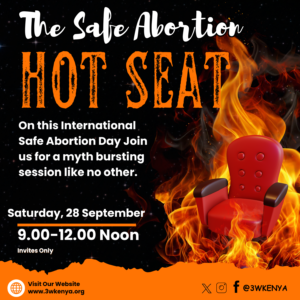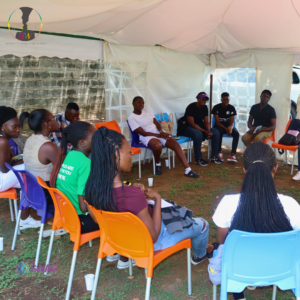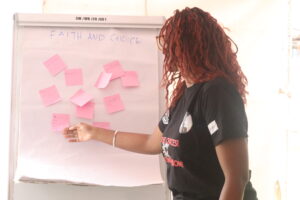Gender and Sexual Diversity Sensitization for Psychotherapists.
Discrimination, abuse and marginalization resulting from sexuality or gender identity can make it difficult to fully enjoy life and to maintain a sense of mental health and well being. It can also make it hard to seek help when problems arise, and to know where to turn for help and support this is therefore why Women Working with Women (3W) supported by Uhai organized a two days training and sensitization sessions for psychotherapists on matters Gender and Sexual Diversity (GSD). The GSD training was intended to broaden the perspectives of the participants so that they are better able to understand concepts and terminologies surrounding gender and sexual diversity, and apply these concepts to their work and in essence be cognizant of how to handle LBQ women.
Who is a Psychotherapist? A psychotherapist is someone who helps people heal and resolve their emotional, mental, behavioral or relational problems that might be causing unhappiness or lack of freedom in life.
What Is Gender and Sexual Diversity? Human beings are naturally diverse, GSD includes identities such as Lesbians, Bisexual, Gay or Queer. When we talk about Gender and Sexual Diversity, we are talking about a few of a person’s many facets biological sex, gender identity and expression, and sexuality and recognizing human diversity across these dimensions.When we talk about sexual and gender diversity, it’s important to understand these terms:
-
- Biological Sex: The biological characteristics that identify humans as female or male at birth. These biological features don’t limit a person to being male or female, as there are people who have both features.
-
- Sexual Orientation: A person’s emotional and sexual attraction to others. It can change and may or may not be the same as a person’s sexual behavior.
-
- Gender/Gender Identity: A person’s internal sense of identity as female, male, both or neither, regardless of their biological sex.
-
- Gender Expression: How a person expresses their gender. This can include how they look, the name they choose, the pronoun they use (e.g., he, she or they) and their social behavior.
-
- Cisgender: a person whose sense of identity and gender matches their biological sex.
The political, cultural and religious institutions in Kenya are built on the foundation of stereotypes and binary assumptions, the participant discussed various assumptions that they have heard concerning Gender and Sexual minorities because of misinformation.
Advice for counselors included the following:
-
- Coming out is a choice but is it not always safe (e.g., coming out to non-supportive parents who still provide financial support). It is not a linear process. One does not have to come out in order to be deemed healthy.
-
- For them to explore their own internalized homophobia prejudice and bias related to gender identity.
-
- They should educate themselves. There are a number of wonderful resources on Google on GSD.
-
- Counselors should allow for and expect ambiguity. Accept and affirm experimentation.
-
- Avoid over-sexualizing LGBT people.
-
- Challenge negative and derogatory language. While respecting pronouns.
-
- Respect confidentiality. “If an LGBT trusts you with information about his or her orientation or identity, treat it as a gift because you are seen as trustworthy”
-
- Do not assume heterosexuality.
-
- Listen, take seriously reported experiences, and refer appropriately. Be prepared to serve as an advocate in order to help and protect. Actively listen without judgment.
-
- Counselors must confront their own individual prejudice and bias toward lesbian or gay clients and culture. The ethics codes of all the major mental health professional associations offer guidance for individuals who work with clients around issues related to their sexual orientation.
Sincere gratitude to UHAI-EASHRI for your continuous support



